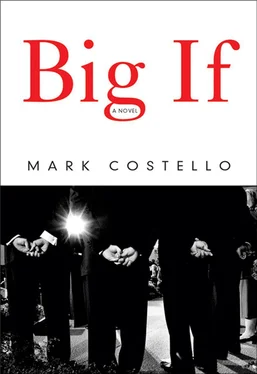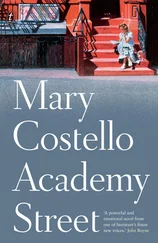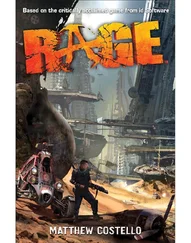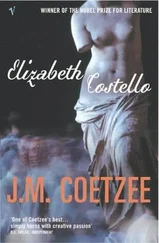Gretchen and Tashmo rode the elevator to the bar. By the time they got there, the bar was past last call. Kelli, the waitress, wiped tables with a rag. The barman hung his tricorner hat on the tap pulls and washed his tankards with a spray gun. Herc Mercado was sitting at the bar, explaining the true meaning of “La Vida Loca” to Kelli as she wiped.
Kelli said, “Isn’t that a street in Italy?”
“No,” said Herc, “it’s about a woman and a man and the music they can make.”
Gretchen came up behind Herc. “I told you to go to bed.”
Herc said, “I went to bed. Now I’m up again.”
Gretchen stared at a spot in the air three inches to the right of Herc’s left ear. Herc slid off the stool, blew a kiss to Kelli, and slunk out.
Gretchen left the paper cup of coffee on the bar. Tashmo followed her to the gray steel fire door. They marched up the stairwell to the roof, the echoes of Gretchen’s footsteps merging with the sound of Tashmo’s feet.
“Now we’re into Lydia’s version,” Gretchen said. “Because, you see, I called her, Tashmo. Had to, once I heard Earl’s story. I’m the one who led her husband to the flood. She’s a real piece of work, Miss Lydia. She told me the part of the story nobody else knows — you and Lloyd, you and her. I gather you were all quite close way back in them Carter days.”
Tashmo said, “I should explain.”
“Yes,” said Gretchen, “but not to me. So there they are in Massachusetts, Lydia, Lloyd, and their son. It was a happy life, if you believe Miss Lydia. Lloyd got up every morning, ran three miles in the nude, stepped off the treadmill, showered, dressed in clothes he had laid out the night before, went off to work. He left the house like any good commuter but never made it to the office.”
Tashmo said, “Where did he go?”
“Everywhere but work. He’d scout for coffee shops offering free refills. He’d stand on commuter rail platforms, waiting for discontinued trains. He’d tour the homes of Concord’s famous authors. He took these tours repeatedly, staring at the furnishings. He fell asleep in Emerson’s boudoir and was asked to leave the Hawthornes’ on several occasions. He went to the Battle Road Visitors Center, the shrine to the Minutemen, sat through the twenty-minute slideshow more than twenty times. The rangers remember him. He seemed to be a busy and important man stealing time from a pressing schedule to learn about his heritage. He was always calling someone on his cell phone, always being paged — he waited for the pages, called back, and was paged again, an epic game of phone tag as he walked the storied mile where liberty was born.”
“Who was he calling?”
“This was the Director’s question. ‘Did this goddamn Felker sell our secrets to A-rabs?’ Boone pulled the billing file on the cell phone. Turns out Felker was feverishly paging himself from the cell, entering the pager as the callback. This went on for weeks.”
“What did Lydia think?”
“She thought they were happy in Massachusetts. She said he seemed more excited, more engaged, and they were having sex again. Don’t make a face. They were having sex like never before and he was finally talking about work. For years, she said, everything he did was secret and Most Sensitive, plans and counterplans — he was totally absorbed, she was totally left out — but now he talked about his job in minute detail, all the tittle-tattle from the water cooler, who was up, who was out, who was kissing butt, who was fighting for a better parking space, what Ned said to Fred about Ted, all the dull, intricate arcana that makes working in a large, collegial office like being wait-listed for Purgatory. And Lydia, hearing it, felt a selfish joy. He was talking, they were talking after sex. He was asking her opinion, like they were a team, like he valued her input and advice. Should I put my name in for the parking space? Should I tell Ted what Ned said to Fred? She listened and she tried to give the best advice she could. It made her happy, and he saw this, so he told her more.”
Gretchen pushed the roof door open. A sniper with a nightscope turned, startled. He saw the chief-of-detail, touched his helmet with his glove, and looked off to the east.
Gretchen walked to the edge of the roof, a little close for Tashmo’s comfort.
She said, “Imagine the energy, the sheer creative will, required to invent, day after day, a new day’s worth of tedium. Can you imagine loving somebody so much that you would do this every day for months just because it gave them a certain amount of pleasure?” Gretchen shook her head, looking down six stories at the parking lot. “Ever loved someone that much?”
“No,” said Tashmo.
“Ever been loved that much?”
“I don’t know,” he said. “Have you?”
“Not so far,” Gretchen said.
She turned back from the drop. “Let’s go.”
“Where?”
She said, “To my room.”
“Felker had a favorite ranger at the Battle Road—a woman, as it happens. Her name was Ranger Nguyen. She isn’t Vietnamese, despite the name. Her parents are, of course, both of them, but Ranger Nguyen was born in Baton Rouge, and she knows everything there is to know about her heritage, falling bombs at Fort McHenry, American guerrillas in the Massachusetts woods, a people mobilized, an arrogant empire hurled back across the sea. The pride she takes in Bunker Hill, the way she reveres Paul Revere — she’s thrilling, somehow, this young and deeply clueless girl. I can see why Felker fell for her.”
They were coming down the hallway of the sixth floor of the inn. A cop was tilted in a chair, reading the want ads.
Gretchen said, “What’s doing?”
“Quiet,” said the cop.
A brace of cops stood outside the VP’s door. It was shift change for the cops. Three were going on, three were coming off. Gretchen walked past them down the hall.
“Felker took the tour with Ranger Nguyen seven times a day and asked her many questions afterwards. Was there a stamp tax on stamps or just on tea? Why was it One If by Land and Two If by Sea? Didn’t the redcoats come by river, which is neither? He asked his questions and she answered brightly, missing part of her lunch hour. It pleased her to be quizzed on her beloved subject and he thought up new tough questions to please her further. She went back to work after lunch and he was there again. This went on for several days and after work one night he was waiting by her car.
“He said, ‘I am here to protect you, Miss Nguyen.’
“She became afraid. He followed her to Cambridge in his car, staying very close. He stood outside her apartment building and was still there in the morning. He followed her to work, staying very close. He took her tour again, again, again, asking no questions now, watching the crowd, as he had been trained to do at Beltsville long ago. He followed her to lunch and home again that night. She called the cops and they arrived, two meatheads in a cruiser. Felker flashed his creds and said he was a fed working on a case. The cops looked at him and saw a guy who looked exactly like a fed. They looked at Nguyen and saw a somewhat strung-out gook. They said, ‘Have a good one, Agent,’ and got in their car. Nguyen, by now a weeping mess, called her dad in Baton Rogue. Her father called an army buddy from the war. I’m not sure which army they were buddies in. I’m assuming it was ours, I mean theirs — our theirs, if you know what I mean. The father’s army buddy owned a string of Boston pizzerias. The pizzeria owner also owned a nickel-plated. forty-five, not the Double Eagle, but the next Colt up the line, I think it’s called the Binding Arbitrator. He crept into the parking lot of Nguyen’s building. Felker stood alone by the entryway, faithfully on post. The army buddy came around the dumpster, shouting at Felker to leave the girl alone. Felker saw him, saw the gun, and shouted something very similar. The army buddy fired, hit Felker in the chest. As they loaded Felker into the ambulance, Ranger Nguyen was beside herself, covered in his blood.”
Читать дальше












